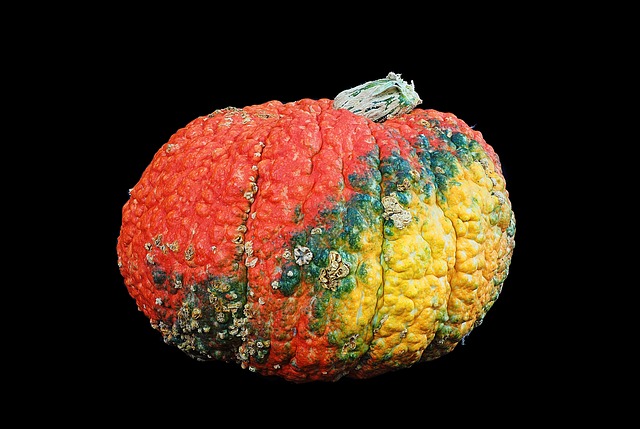What are your best tips to conquer anxiety, depression and uncertainty? Top answers will be featured to 20,000 people.
Want to help others through a challenging time while being featured on the Different Hunger blog that reaches thousands of people per week?
I am currently organizing a round up post featuring advice from freelancers, agency owners and creators answering one simple question...
What are your best tips to conquer anxiety, depression and uncertainty?
The top answers will be featured in the post on the Different Hunger blog, shared with the DH email list of 6,000+ and promoted on our social media channels to over 20,000 people - featured answers will also get a link back to your website.
Let's help one another through this challenging time! thanks in advance. Please tag other friends who can contribute :)
👇👇👇Share your answers below ! 👇👇👇
Trending on Indie Hackers






Edit: Given this comment got bigger than anticipated I decided to post it on my blog over here; https://corstianboerman.com/2020-04-26/anxiety-depression-and-uncertainty.html
How was your childhood? Take a while, reflect on it, and then come with an answer.
The reason I'm asking is because many people, especially those with a really shitty childhood, will be the quickest to answer it was great. Was it? Or was your frame of reference so small you did not have anything to compare it with?
I totally get it that this question is difficult to answer. Another, and maybe easier question to frame this is to ask yourself what you would do different with your own kids compared to how you have been brought up.
What has this to do with depression, anxiety and uncertainty? Alice Miller, a Polish-Swiss psychologist, psychoanalyst and philosopher, has extensively written about the impact of one's youth on the development of ones personality. In her first book "The Drama of the Gifted Child", she has described two reactions to the loss of love (from caregivers) as being depression, and its counterpart grandiosity.
An interesting dynamic between child and caregiver which highly influences how one turns out is the availability. In normal situations the caregiver should be available towards their child, but there are situations where it is expected from the child to be available for the caregiver. A specific example is when a child will get attention, and only get attention if it does something which gets the approval of the caregiver. You might think this is how people are being raised, but when a child only gets attention when it does something which is being approved of, there will be no space for their own exploration of the world, their feelings and their personality. There is no love for the child is not accepted as to who they are.
The end result paints an image where we see an adult who's trying its best to actively earn the approval of their caregivers. Working hard, following up on all the advice -implicitly or explicitly given- in order to be someone, someone they are not. They do not know how to be their true selves, because it is they have always had to suppress in order to be accepted into this world. As Alice Miller wrote; "People are free from depression when their feeling of own worth is derived from the truth of their own feelings, and not on the possession of certain qualities".
While I'm at this topic I'll take the moment to write a bit about suicide. How many times, in the context of suicide, have you heard something along the likes "But we'll miss you when you're gone". Assuming the wish to commit suicide flows forth from a deep and ravaging depression, there is little more selfish than such statement for the reasons stated before. Saying something like that is selfish, signals a shortsighted view, and makes it look like as if said person wants to get out of the situation as soon as possible. Suicide isn't a topic to avoid. Have a compassionate conversation with the person battling such heavy feelings of depression, and listen attentively to what's going on. It might save a life one day.
Back to depression; being able to identify the root causes of your depression absolutely is a super power! If you're able to match situations from your childhood with where you're at now, it'll enable you to draw parallels and identify reasons why you feel those feelings of anxiety, depression or uncertainty. Remember that the way you perceive your past is only a reflection of what you remember from it. Because of this it is possible to revisit an event from the past, but with all the knowledge you have today. You might discover that the situation was completely different from what you had remembered and turn a negative memory into a positive one. You might even feel grief and sadness for the person you were in the past, maybe even for the first time ever.
I wonder what it looks like when society starts adopting this view of encouraging and accepting what there is in people instead of demanding certain behaviors of them.
Hey Matt,
Thanks for posting this questions. It's a really important one, now more than ever.
First lets consider where these emotions originate:
Sometimes anxiety, depression and uncertainty are caused by a chemical imbalance that we simply can't control (without medication).
More frequently these emotions are the byproduct of our perceived reality. I want to place extra emphasis on the word "perceived" here.
Things might be good, great, or terrible, but our perception of our reality will ultimately dictate how we feel.
So the question is really "How do we change our perception of the present and the future?"
Here are the tools that I personally use to maintain an upbeat perspective:
Meditation:
Meditating has really helped me stay grounded and present during these uncertain times.
Journaling:
Journaling has been a great format for unloading all my frustrations and fears. Simply getting those thoughts down on paper is cathartic, and helps you move forward without all that baggage.
Exercise:
Home workouts have been a god send for me. Simply put, we need to move a certain amount each day to feel good. Getting into a workout routine also gives you a goal to work towards... which makes the future feel brighter.
Eat well:
This ones a no brainer, when you eat well you feel good. Our gut is considered our "second brain", so it's no wonder we feel uneasy when we're fed bad food.
Work:
Work is an incredibly important part of a balanced life. It creates tangible goals and targets that you're in control of... and when you feel in control you feel good about your future, and yourself.
Connect with loved ones:
This may be the most important one on this list. We know that maintaining strong bonds with others is the cornerstone for happiness and wellbeing. In these times of isolation this is even more important.
Maintain Routines:
This one sounds simple, but it's not for most people. Having a routine creates structure, which breeds a certain amount of stability and security. Knowing exactly how you're going to spend the better part of your day will help ease most tensions you feel.
There's no one silver bullet that will erase these bad feelings completely, but my experience has been extremely positive with these habits.
---
Shameless plug: I'm also the CEO of Magic.
Magic is a wellness app. We help you form better morning habits so you can kickstart your day.
huge thanks guys, these replies are amazing, will really help a lot of people, will update shortly on launch date... please keep them coming! @Corstian @heylorenzut @Primer <3
This comment was deleted 2 years ago.
This comment was deleted 2 years ago.